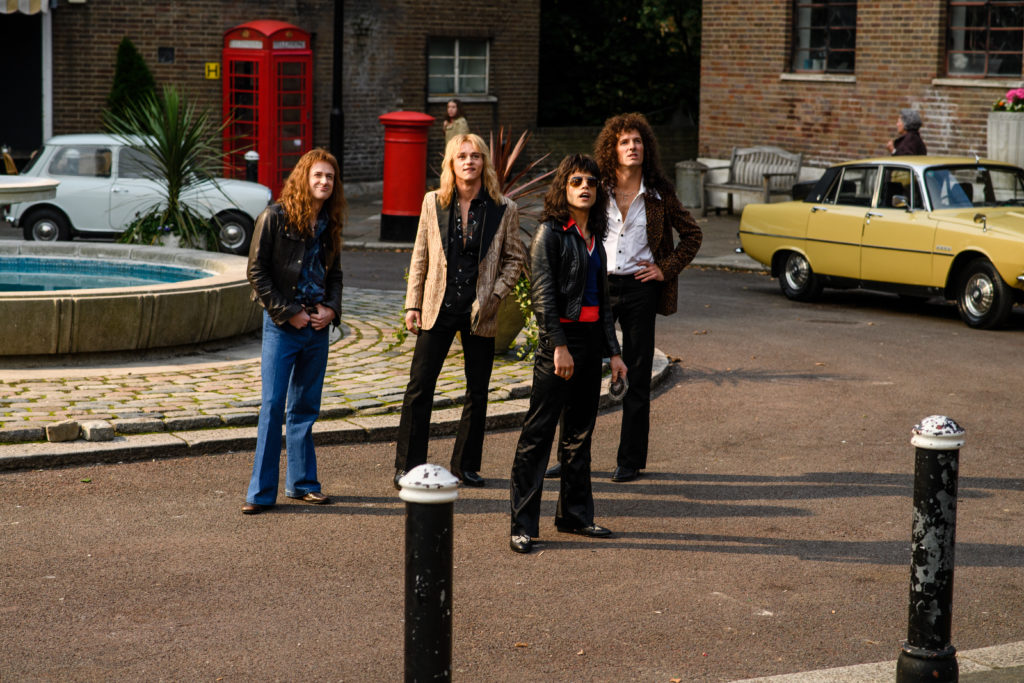
As a result of the mixed reviews being published about Bohemian Rhapsody, I went into the cinema unsure of what to expect. I had heard the pace was slow, the content was exaggerated, and most of all, that it hid Freddie Mercury’s bisexuality.
But for me, those reviews couldn’t have been further from the truth.
Queen is incredibly special to England—if you ask any English person about their taste in music, chances are they will mention Queen. Even if they don’t regularly listen to them, they’ll more than likely have an understanding and respect for what Queen means to England. Their music embodies a sort of rebellion and rise against convention that is often found at the heart of English culture, and Freddie Mercury himself symbolizes a defiance against stereotypes in his unabashed existence.

As a result, it would make sense that reviews about Bryan Singer’s Bohemian Rhapsody would be particularly critical, as audiences more than likely went in with very high expectations and had hoped that the film would uphold a certain image of Queen.
As for me, I couldn’t have possibly enjoyed the film more if I tried. It was one of the best movie theater experiences I’ve had this year.
Malek as Mercury

First and foremost, it is safe to say that Rami Malek as Freddie Mercury was perhaps the role he was born to play. This is a constant that most critics seem to agree upon, regardless of overall opinions of the film. Malek embodies Mercury from head to toe; from teeth prosthetics to handlebar mustache. His confidence is nothing short of the confidence that Mercury, himself, appeared to exude on stage and in public.
It’s hard to assess whether I judged the film as well as I should have, because I was almost too invested in Malek’s performance to give a critical eye to other areas of the film. I can’t necessarily comment on the film’s cinematography or mise-en-scéne, as I do with mostly every other film I watch.
Malek’s Performance Dominates Bohemian Rhapsody
But that truly was one of the most beautiful parts of the film; Malek’s performance was emotional, passionate, and fun, and everything else seemed to fall into place around him.

Some critics argue—and I agree—that there was a lot that this film glosses over in terms of the telling of Freddie Mercury’s life. But it’s important to remember that in an 134 minute biopic, there’s only so much that can be told—especially when it comes to Mercury, whose life would need an encyclopedia to tell in full.
Additionally, the film’s main focus is on Queen—it isn’t meant to tell only Mercury’s story. The film shows the audience how Queen came to be, the origins of their music, and the relationship between band members. I would argue that focusing solely on the events within Mercury’s life would be a disservice to Queen as a whole, because the band was made up of so much life. In addition, the members of the band were heavily involved in the making of the film, and specified what they did and didn’t want to be told.
Criticism

Critics aren’t pleased with the overall timeline accuracy of the film. While most moviegoers probably won’t pick up on these inaccuracies during the film, upon further research, will probably read about some errors such as Mercury’s diagnosis of AIDS not actually happening until two years after his 1985 Live Aid concert— in the film, he reveals this news to his bandmates before the concert. This was probably done as a way to increase cinematic drama and make his performance at Live Aid even more of a rising action, a subsequent depiction of his heroic acceptance of his diagnosis. Whatever the reason was, it wasn’t actually how the events took place in Mercury’s life, and viewers weren’t happy about it. It’s odd that details should be incorrect at all, as Queen members Brian May and Roger Taylor helped with parts of the film production; perhaps they were focused more on the music and less on the intimate details.
Representation of sexuality

As for the details of Mercury’s sexuality, I believe that it beautifully painted a picture of the events that lead him to becoming the sexually confident rockstar that everyone knew him as. The first half of the film depicted the time he was married to Mary Austin, while simultaneously questioning his sexuality and attempting to shield his bisexual side.
A Love Letter to Queen
The second half of the film unabashedly demonstrates his acceptance of his sexuality and his catapult into life as a bisexual man. This half of his life (and subsequently, this half of the film) also shows his diagnosis of AIDS, which critics argue the film didn’t go into enough detail about. However, I appreciate the film for keeping out these details; the specificities of AIDS can often be incredibly gruesome, and fans of Queen know how much Mercury suffered during this time. The film stood as a love letter to Queen and therefore didn’t feel the need to convey extraneous details of his suffering.

Many films depicting the lives of gay people will often resort to focusing on their suffering, perpetuating suffering as unavoidable side effect of gayness. This trope is incredibly common and is colloquially called “burying your gays”, otherwise known as a homophobic cliché of film and TV to kill off their gay characters. Therefore, I applaud Bohemian Rhapsody for respectfully conveying Mercury’s fight with AIDS, but simultaneously focusing on his life as the Queen he was.
I can’t recommend enough that you see Bohemian Rhapsody as soon as you can—if you get the chance, seeing it in cinemas feels like an actual rock concert.
You can buy tickets in the UK here and in the US here.
Review by Editorial Intern Cassidy Anthony. Cassidy is studying for an MA in Journalism at Kingston University.
Edited by Alison Jane Reid
Images Copyright 20th Century Fox 2018, All Rights Reserved. Strictly No Reproduction.






